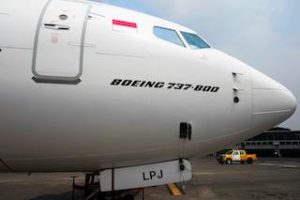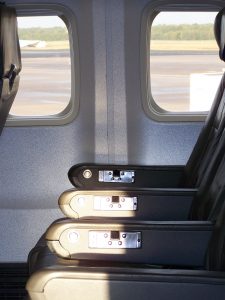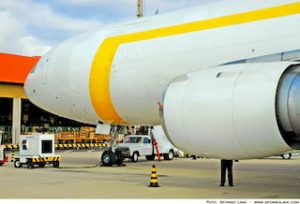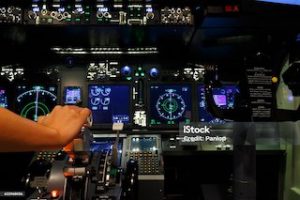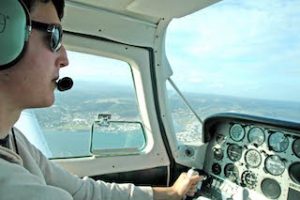The Importance Of The Multi-Crew Cooperation (MCC) Course Certificate In The Airline Industry
 The aviation industry is renowned for its stringent safety standards and rigorous training requirements. One of the critical milestones in a pilot’s career is the successful completion of the Multi-Crew Cooperation (MCC) course, which equips pilots with the necessary skills to operate effectively within a multi-crew environment. Upon completion of the MCC course, pilots receive a certificate that not only enhances their employability with commercial airlines but also is a prerequisite for obtaining the Airline Transport Pilot License (ATPL). This article explores the significance of the MCC course certificate, its role in a pilot’s career progression, and its impact on the safety and efficiency of airline operations.
The aviation industry is renowned for its stringent safety standards and rigorous training requirements. One of the critical milestones in a pilot’s career is the successful completion of the Multi-Crew Cooperation (MCC) course, which equips pilots with the necessary skills to operate effectively within a multi-crew environment. Upon completion of the MCC course, pilots receive a certificate that not only enhances their employability with commercial airlines but also is a prerequisite for obtaining the Airline Transport Pilot License (ATPL). This article explores the significance of the MCC course certificate, its role in a pilot’s career progression, and its impact on the safety and efficiency of airline operations.
Structure and purpose of the course
The MCC course is designed to transition pilots from single-pilot operations to the collaborative environment of multi-crew operations. It focuses on developing the interpersonal, communication, and teamwork skills necessary for effective cockpit management.
Significance of MCC certificate
The MCC certificate is a formal recognition of a pilot’s ability to operate within a multi-crew environment. This certification holds substantial value for several reasons:
1) Employment prerequisite
- Commercial airline requirement: For many commercial airlines, the MCC certificate is a prerequisite for employment. Airlines prioritize hiring pilots who have demonstrated their ability to work effectively in a team, manage cockpit resources, and maintain high safety standards.
- Competency assurance: The certificate assures airlines that the pilot has undergone rigorous training and possesses the necessary skills to contribute to safe and efficient flight operations. This is particularly crucial in an industry where safety is paramount.
2) Progression to airline transport pilot license (ATPL)
- Regulatory requirement: The MCC certificate is a mandatory requirement for obtaining the ATPL, the highest level of pilot certification. The ATPL allows pilots to serve as captains on commercial aircraft, a position that carries significant responsibility.
- Pathway to command: The completion of the MCC course and the attainment of the certificate signify a critical step in a pilot’s journey towards becoming a captain. It marks the transition from co-pilot or first officer roles to command positions, underscoring the pilot’s readiness to assume greater responsibilities.
3) Enhancement of professional skills
- Advanced training: The MCC course provides advanced training in CRM, decision-making, and emergency handling. These skills are not only vital for the safety of flight operations but also contribute to the overall professionalism and competence of the pilot.
- Career development: Possession of the MCC certificate enhances a pilot’s resume, making them more competitive in the job market. It opens up opportunities for career advancement and specialisation within the aviation industry
Future of MCC training and certification
As the aviation industry evolves, so too does the approach to MCC training and certification. Advances in technology and changes in regulatory requirements continue to shape the future of pilot training.
1) Technological advancements
- Virtual reality (VR) and augmented reality (AR): The use of VR and AR in MCC training is on the rise. These technologies provide immersive training experiences, allowing pilots to practice multi-crew operations and emergency scenarios in a highly realistic environment.
- Enhanced simulators: Modern flight simulators are becoming increasingly sophisticated, offering more realistic and varied training scenarios. These enhancements improve the quality of training and better prepare pilots for real-world operations.
2) Evolving regulatory requirements
- Global standardisation: Efforts are underway to standardise MCC training requirements globally. This ensures that all pilots, regardless of where they are trained, meet the same high standards of competence and safety.
- Continuous professional development: Regulatory bodies are emphasising the importance of continuous professional development. This includes regular refresher courses and recurrent training to ensure that pilots maintain their skills and stay updated with the latest industry practices.
3) Emphasis on soft skills:
- Emotional intelligence: Training programs are increasingly recognizing the importance of emotional intelligence in multi-crew operations. This includes skills such as empathy, self-awareness, and the ability to manage emotions effectively.
- Cultural competence: With the global nature of the aviation industry, cultural competence is becoming a critical skill. Training programs are incorporating modules on cultural awareness and sensitivity to prepare pilots for working in diverse teams.
Conclusion
The Multi-Crew Cooperation (MCC) course and the subsequent certification are pivotal in the training and career progression of airline pilots. The MCC certificate is not only a prerequisite for employment with commercial airlines but also an essential requirement for obtaining the Airline Transport Pilot License (ATPL). This certification signifies a pilot’s readiness to operate within a multi-crew environment, manage complex situations, and contribute to the safety and efficiency of flight operations.
By emphasizing the principles of multi-crew operations, human factors, and CRM, the MCC course equips pilots with the necessary skills to excel in their roles. The certificate serves as a testament to a pilot’s competence, enhancing their employability and career prospects. Furthermore, the rigorous training and continuous assessment involved in the MCC course promote a culture of safety, professionalism, and continuous improvement within the aviation industry.
As the industry continues to evolve, the importance of the MCC certificate will only grow, ensuring that pilots are well-prepared to meet the challenges of modern aviation and uphold the highest standards of safety and efficiency

